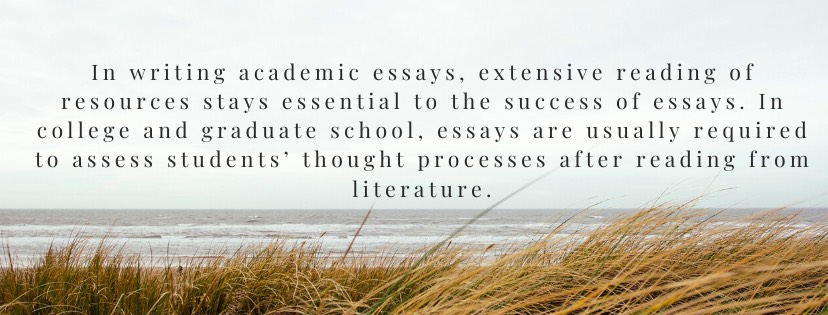Writing assignments is not like any other homework you’ve ever done or will do in your academic life. Writing assignments demands unrestrained dedication and plenty of willpower. You cannot just open a book and copy-paste its contents with some rephrasing. To write a better assignment, you need to work hard, you need to research, plan, draft, and edit carefully. Writing an assignment paper is one thing and writing an impactful assignment paper that instills a positive impression of you in your professor’s books and elicits good grades out of him/her is another one. The following tips will help you write a perfect assignment paper.

This article discusses 6 tips for writing better assignments. To give you an opportunity to practice proofreading, we have left a few spelling, punctuation, or grammatical errors in the text. See if you can spot them! If you spot the errors correctly, you will be entitled to a 10% discount.
Writing an assignment is not like any other homework you’ve ever done or will do in your academic life. Writing assignments demands unrestrained dedication and plenty of willpower. You cannot just open a book and copy-paste its contents with some rephrasing. To write an assignment, you need to work hard. To write an impactful assignment, you need to research, plan, draft, and edit carefully.
Writing an assignment paper is one thing and writing an impactful assignment paper that instills a positive impression of you in your professor’s books and elicits good grades out of him/her is another one. The following tips will help you write a perfect assignment paper.
1. Planning
Writing an academic paper requires meticulous planning. Choosing the number of sections, their sequence, and the material and sources that will be included in the paper is the first and foremost step when it comes to writing perfect assignments.
Studies show that students who create thorough outlines produce higher-quality texts. Planning the writing process helps you obtain better grades and makes you spend less time looking blankly at the screen, pondering what to write next.
Various detailed online guides provide students with complete guidance on writing and planning research papers. Therefore, before you start writing, try creating a framework or an outline. Each paragraph should flow naturally, and your points should add up to support your main idea.
2. Research and references
Aside from directions and deadlines, lecturers are increasingly making resources available, and students often tend to take help from these resources. Depending on the discipline, an undergraduate student essay usually requires several sources. Students who use and cite a measly two or three sources have a lower chance of getting a good grade as it is a clear-cut indicator that they haven't conducted enough research. They may include several more references in the bibliography in some situations but, to receive excellent credit, the writer must relate to each of these directly.
3. Demonstrate your knowledge
The use of someone else's words or ideas without attribution, commonly known as plagiarism, is a serious academic offense. It is considered a sort of deception and getting negative points for a plagiarized assignment isn’t unheard of.
Also, examiners will give high marks to students who have exhibited a deep understanding of the subject. This means that a considerable deal of research and analytical thinking can help you improve your grade. Try reading different sources on your subject and make sure you understand how they fit into your industry rather than copying someone else’s hard work. This will allow you to write your assignments in a way that demonstrates thorough comprehension of the subject. To avoid plagiarism, you can also contact your university's library, which is likely to offer face-to-face workshops or online materials on the subject.
3. Spellings and grammar
Grammar and spelling errors usually prevent students from scoring decent grades. To obtain better scores, students must exhibit their abilities to write smoothly and adequately. Errors in language and spelling suggest that students did not spend enough time reviewing their own work, which might affect the examiner's decision negatively.
Proofreading and, if possible, having someone else review your writing for flaws is a sure-fire strategy that will greatly assist you in enhancing your essay, coursework, or assignment. The written language at university is more formal and technical than the language you would use on social media or in a conversation with your pals. Academic words are typically longer and have a more precise meaning. There are various online tools that you can use to ensure that your writing remains free of grammar and spelling errors.
4. Keep it easy
Excessive wordiness is a common problem for essays, especially for undergraduate assignments. Students who approach the writing task with the sole purpose of meeting the word count will frequently produce long-winded work and lack enough analysis.
To avoid doing this, make a list of your main ideas and sources you can utilize to back them up. This will allow you to gather enough “specific” information to effortlessly piece together an entire essay. It will also prevent you from making arbitrary or superfluous statements in your paper or project.

5. Revise and edit
There’s always a possibility that you might skip on some crucial parts of the writing process. Though you may consider using some grammar checkers to review your work, the fact is that no software tool can currently detect every grammatical problem accurately. And it is not rare for a student to follow the grammar checking tool blindly and include incorrect suggestions in the assignment. Hence, in addition to picking a proofreader, you should work on improving and broadening your grammar understanding.
Editing and Proofreading- Meaning, Difference, Writing Process
How Editing and Proofreading Can Amp Up Your Content Marketing
It is essential to write the assignment paper with proper precision and follow proper guidelines. However, since not every student is a master of writing exceptional assignments, hiring some professionals to edit and proofread your assignment papers doesn’t hurt. We provide premium editing and proofreading services and take care of the overall structure of your papers, ensuring that your assignments are always rife with proper grammar, smooth word flow, and accuracy. Our in-depth editing services can polish your work and make it free from grammatical, structural, and spelling errors. Reach out to us today and get the best proofreaders for your assignments.
8 Things to Consider Before Hiring Online Editing or Proofreading Services
Guide to Editing and Proofreading Before Submitting a Manuscript
Best Edit & Proof expert editors and proofreaders focus on offering manuscripts with proper tone, content, and style of academic writing, and also provide an upscale editing and proofreading service for you. If you consider our pieces of advice, you will witness a notable increase in the chance for your research manuscript to be accepted by the publishers. We work together as an academic writing style guide by bestowing subject-area editing and proofreading around several categorized writing styles. With the group of our expert editors, you will always find us all set to help you identify the tone and style that your manuscript needs to get a nod from the publishers.
You can also avail of our assistance if you are looking for editors who can format your manuscript, or just check on the particular styles for the formatting task as per the guidelines provided to you, e.g., APA, MLA, or Chicago/Turabian styles. Best Edit & Proof editors and proofreaders provide all sorts of academic writing help, including editing and proofreading services, using our user-friendly website, and a streamlined ordering process.
Visit our order page if you want our subject-area editors or language experts to work on your manuscript to improve its tone and style and give it a perfect academic tone and style through proper editing and proofreading. The process of submitting a paper is very easy and quick. Click here to find out how it works.
Our pricing is based on the type of service you avail of here, be it editing or proofreading. We charge on the basis of the word count of your manuscript that you submit for editing and proofreading and the turnaround time it takes to get it done. If you want to get an instant price quote for your project, copy and paste your document or enter your word count into our pricing calculator.
Contact us to get support with academic editing and proofreading. We have a 24/7 active live chat mode to offer you direct support along with qualified editors to refine and furbish your manuscript.
Follow us on Twitter, LinkedIn, Facebook, Instagram, and Medium.
For more posts, click here.
How to Determine Variability in a Dataset
14.10.2023
How to Determine Central Tendency
19.02.2023
How to Specify Study Variables in Research Papers?
14.01.2023
Population vs Sample | Sampling Methods for a Dissertation
14.01.2023
How to Ensure the Quality of Academic Writing in a Thesis and Dissertation?
04.12.2022
How to Avoid Anthropomorphism in Your Dissertation?
04.11.2022
How to Write a Research Methodology Section for a Dissertation and Thesis
07.08.2022
How to Write a Theoretical Framework for a Dissertation and Thesis?
05.08.2022
How to Write Literature Review for a Dissertation and Thesis
02.08.2022
How to Write a Dissertation and Thesis Introduction
31.07.2022

Some might say that the only difference between academic and business writing is the fact that the former is practiced by scholars while the latter by professionals. However, when perused closely, one can discern some stark as well as nuanced demarcation between the two. For individuals, such as college graduates, who need to occasionally shift between academic writing and business writing, knowing these differences can help them format their respective documents appropriately.
Continue Reading
Statistical analysis uses quantitative data and explores trends, patterns, and relationships. Thus, it is an indispensable instrument for researchers, states, firms, and many others. This article offers introductory knowledge on statistical analysis for students and researchers. After discussing descriptive and inferential statistics, it covers various research designs.
Continue Reading
The cover letter acts as the first impression that the authors or their work will have on the editor. It can be contemplated as the “sales pitch” of the conducted research and the submitted work. It, therefore, deserves meticulous attention and should never be written half-heartedly. This article discusses how to write a persuasive cover letter for journal submission and presents an easy-to-follow rubric that will help you draft an impeccable cover letter.
Continue Reading